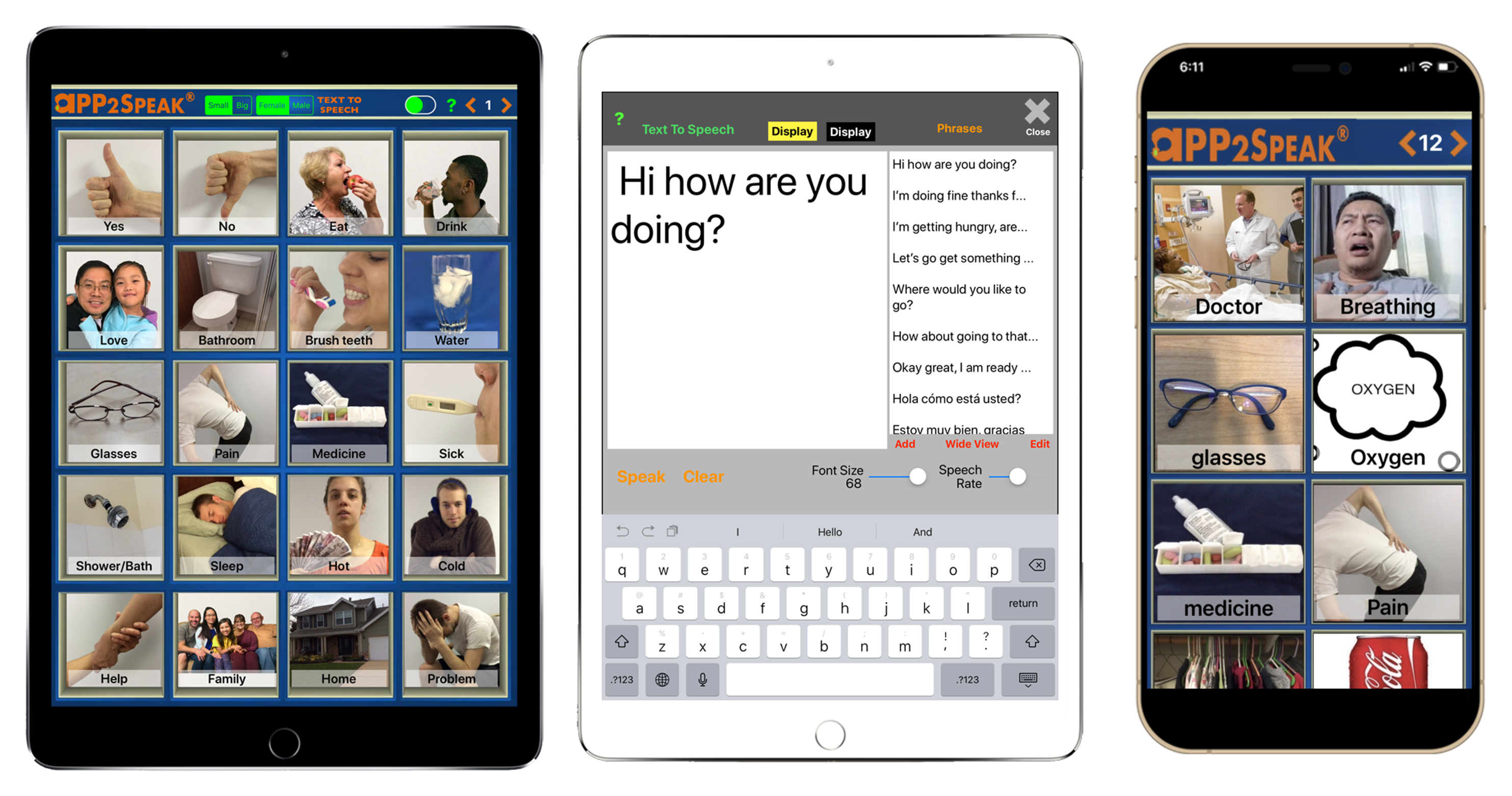
From Homemade Switches to High-Tech App: Celebrating the 10-Year Anniversary of APP2Speak!
This month marks a significant milestone for me and everyone involved in the development of APP2Speak: our app's 10-year anniversary! Reflecting on our journey, it feels like a natural progression. My initial intention wasn’t to develop a speech app; I was simply addressing the communication challenges faced by my patients, continuously seeking better solutions. This relentless pursuit of improvement ultimately led to the creation of APP2Speak, a tool that has empowered hundreds to communicate...
7 Easy Ways to Enhance Communication with Your Loved One with Early-Stage Alzheimer’s
Feeling frustrated and lost when trying to communicate with your loved one who has early-stage Alzheimer's? You're not alone. If you’re like many others in this situation, you’ve probably thought, "I just wish I knew how to connect better with them." And it’s perfectly okay to feel that way. Caring for someone with Alzheimer's can be like navigating a maze where the walls keep shifting. You’re doing your best, but it can wear you down. But don’t give up hope. Relief is just around the corner....
A Long and Winding Road: My 41-year Career as a Speech Language Pathologist
The Role of the Speech Language Pathologist May is National Speech-Language-Hearing Month (formerly called Better Hearing and Speech Month). Each year at this time, I get a little reflective about my career as a Speech Language Pathologist and all the changes I’ve seen take place in the field. I’m proud of the 41 years I’ve spent in the field, I think I’ve accomplished a lot, and I feel like I have some experience to share with others. So that’s what I’m going to do in this month’s blog post....
From Autism Awareness to Autism Acceptance: Giving a Voice to People with Autism
Almost 50 years ago, the Autism Society in the U.S. launched its first autism awareness campaign. This evolved into Autism Awareness Month, which has taken place each April for decades now. While the original idea behind this event was certainly well-intentioned, the dialogue and activities that have developed over the years to “celebrate” Autism Awareness Month have come to be viewed in a less-than-positive light by many people with autism and their family members, friends, and support...
It’s Never Too Late to Reevaluate Your AAC Speech App
Recently, I’ve started working with a new patient. This gentleman had a stroke about six years ago and lost his ability to speak. While I’m still in the process of learning about his preferences, needs, cognitive abilities, etc., I’ve already found out one crucial piece of information: upon losing his ability to speak, he was provided with a free app on his iPad…but he doesn’t use it. I’ve also discovered that the reason he doesn’t use it is that he doesn’t understand the symbols and...
Would Your Loved One or Client Benefit from AAC? Find Out with Our Assistive Technology Compatibility Checklist
If you have a loved one or client who has challenges trying to communicate, you’ve probably been wondering whether it’s time to look for some help in the form of an augmentative and alternative communication (AAC) device or app. If so, your first move should be to seek professional assistance from a speech pathologist or AAC specialist. But if the physician won’t provide a referral to a speech pathologist, or if your insurance does not cover such services, you may need to take the initiative...
Dementia Care and Communication: The Dos and Don’ts of Dementia Communication Strategies
Dementia profoundly affects millions of individuals and their families worldwide, bringing unique challenges into the lives of those tasked with caregiving. Caregivers often find themselves at a crossroads, especially when it comes to communicating effectively with those in their care. The condition's impact on cognitive abilities can transform what used to be simple conversations into intricate puzzles, which can leave both parties feeling misunderstood and frustrated. In this post, you’ll...
Effective Dementia Communication Strategies: Insights from a Speech-Language Pathologist
Dementia profoundly impacts lives, altering the very essence of communication for those affected. As a certified speech-language pathologist, I've witnessed firsthand these challenges (and triumphs) in the journey of dementia caregiving. The crux of effective dementia care lies in understanding and adapting to the unique communication needs of those living with this condition. In this article, you’ll learn: The foundational aspects of dementia, including its types, symptoms, and stages. The...
Debunking 11 Common Augmentative and Alternative Communication (AAC) Myths
Augmentative and Alternative Communication (AAC) plays a crucial role in assisting individuals with communication challenges. Yet, numerous misconceptions surround its use and effectiveness. In this post, I want to debunk some common AAC myths and shed light on the truths of AAC. In this post, you’ll learn about: What AAC is, 11 common myths about AAC, The actual capabilities and scope of AAC, The damage caused when people believe these myths, and Some best practices for implementing AAC....
AAC Awareness Month 2023: Share Your Memorable Moments with AAC
In the world of augmentative and alternative communication (AAC), October holds a special place as AAC Awareness Month. This month-long event is dedicated to raising awareness about the importance of communication for individuals who have lost their ability to speak, whether due to stroke, brain injury, ALS, or other conditions. In this blog post, we’ll delve into the definition of augmentative and alternative communication, explore the historical background of AAC Awareness Month, reveal the...

